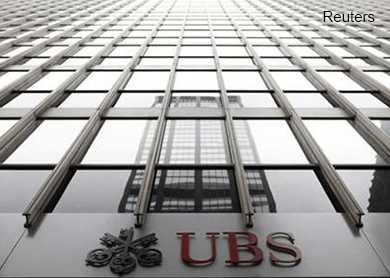
KUALA LUMPUR: UBS Investment Bank, which sees slowing economic growth in Malaysia this year and 2016 if oil prices remain in their current range, said rebuilding confidence in the local economy “could take awhile”.
Its senior economist for Asean and India Edward Teather said the Malaysian government is on the right track to rebuild confidence in the economy.
On Monday, the government unveiled a slew of economic stimuli, which entailed a RM20 billion capital injection by ValueCap Sdn Bhd into the equity market.
“The idea that the government is being active in rebuilding confidence is good, but it is worthwhile to bear in mind that Malaysia has had a number of economic shocks in [the] recent past,” he told a media conference yesterday.
“Malaysia has seen a deterioration in its credit cycle, a fall in oil prices and turbulence in the currency market. It is going to take some time for these negative shocks to [seep] through the economy, but certainly the government can help by changing policies to make life easier for businesses, and encourage them to go out and do more business.
“It is positive to see that the government is trying to do that,” said Teather.
He said that things could be worse without the efforts of the government and the central bank to support the economy.
Nevertheless, Teather opined that the Malaysian government’s ongoing efforts to encourage investor and business confidence by promising reforms and making the business environment easier will take time to come into effect.
Year to date, the ringgit has fallen 21% against the greenback, topping the list as one of the worst performing currencies in Asia.
It currently trades at 4.25 against the US dollar. The devaluation of the yuan, coupled with the expectations of a rise in US interest rates, contributed to push the ringgit lower as the US dollar strengthened.
Teather said UBS is forecasting that the yuan will depreciate by another 6.8% against the greenback by end-2016. This would cause Asian currencies to move along with it, but at varying degrees, he added.
He also said that because the ringgit had fallen more against the US dollar compared with the yuan — after China’s intentional devaluation of its currency — Malaysian exporters have gained competitive advantage.
Nevertheless, it appears that exporters’ better margins would come at the cost of domestic consumers who would have to pay more for imports that have become more expensive as the local currency depreciates.
“It is difficult to say which of the two (better margins for exporters or consumers’ pinch from more expensive imports) is more important for Malaysia, but [a] strong conclusion to go home with is that [while] the fall [in the value of the ringgit] is positive for export margins, it causes a pinch on domestic purchasing power,” he said.
Teather also said in the long run, prices, exports, import volumes and wages may adjust to the changes in the exchange rate.
“So, we cannot be sure if a weaker currency will be a net plus for gross domestic product (GDP) growth in a country.
“Much of it depends on the confidence level in the country, whether exporters are willing to go out and spend, and also how consumers react to more expensive foreign goods.
“But given [the] global fears over demand growth, we suspect [that] exporters in Southeast Asia will not rush to expand capacity and export volume, and as such, real GDP growth won’t get much of a boost in non-China Asia,” he added.
This article first appeared in digitaledge Daily, on September 18, 2015.